Music moves us, and oftentimes can even transform us.
It can help get us through the hardest times in life.
It inspires us, encourages us, lifts us up. Gives us goosebumps.
Stories of musicians that broke through and made it are some of the most fascinating and inspiring to me personally. The story of the man with his back to the crowd is one of the wildest stories about any musician you’ll ever hear.
I tell people about it all the time and follow up with the recommendation that they watch the documentary film that accompanies it.
It is the most inspiring story of a musician who almost didn’t make it.
Perhaps more accurately, he thought he didn’t make it…but he actually did.
That’s where his story takes a huge turn.
Imagine A Musician With A Soft Spoken Voice…Playing With His Back To The Crowd
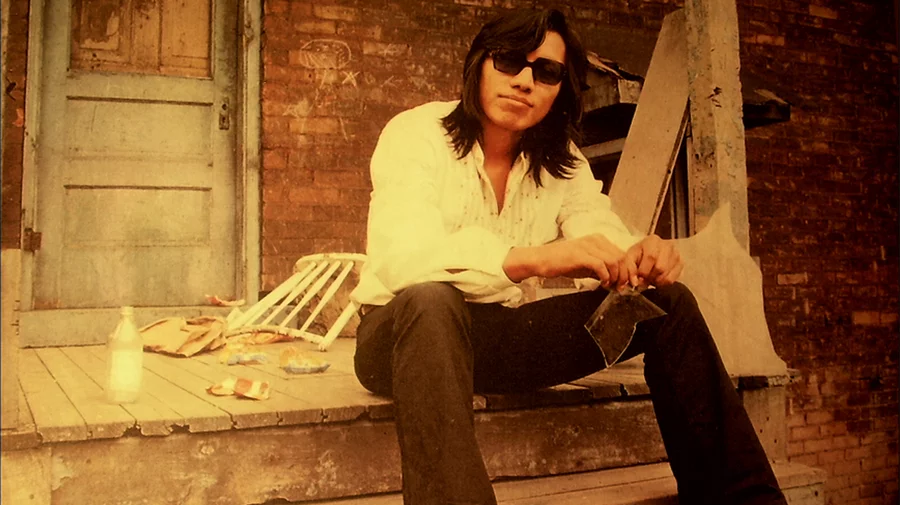
But first, who is this mysterious musician? He goes by Rodriguez.
Full name, Sixto Rodriguez.
He also went by the name ‘Sugar Man’ and played at local dive bars in the metro Detroit area back in 1967. He was playing at local venues, coffee shops, bars, even gay bars.
Any gig he could to pursue his dream.
He was a quiet musician. Soft spoken, almost with a voice like Michael Jackson.
Very few words, but each word he spoke mattered. He would play with his back to the crowd so the audience thought he was shy or reserved. He was a tough person to read. You’d see him around town in Detroit walking with a guitar on his back.
No one knew where he lived, or if he was homeless.
Rodriguez Immigrated From Mexico To Detroit When He Was Just 16
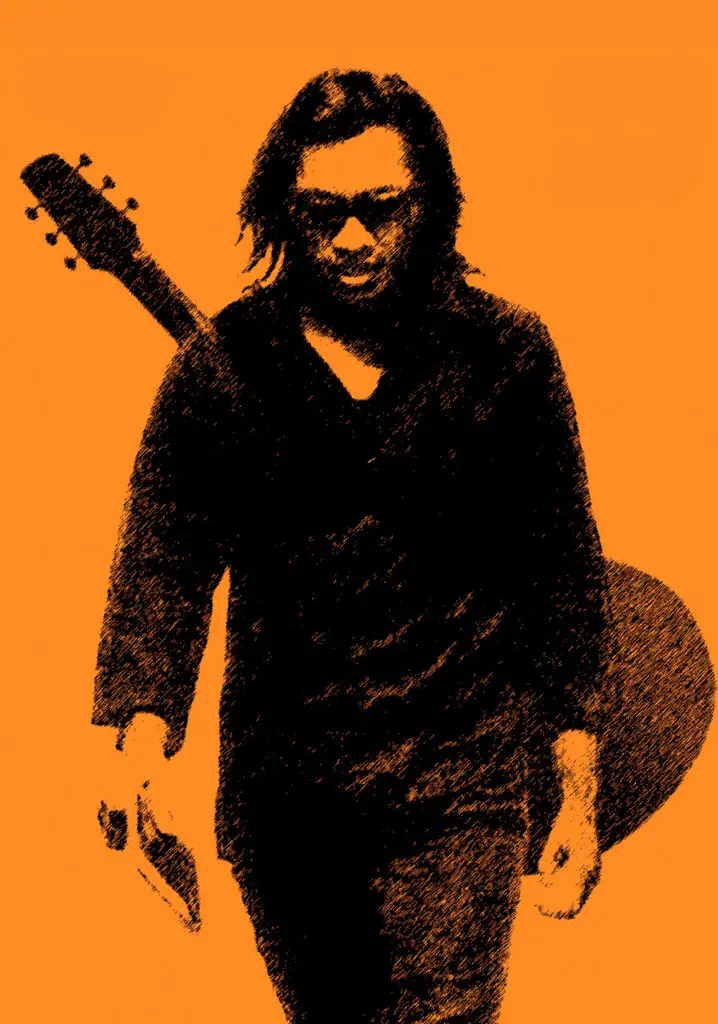
Sixto Rodriguez was just 16 years old when he started playing his family’s guitar.
He would go on to write songs and perform them at local bars around the Detroit area, often being compared side-by-side with icons like Cat Stevens or Bob Dylan.
Sixto’s Mexican grandparents moved here after coming over by ship at some point between the 1920’s and 1930s.
He was one of the several immigrants that moved to Detroit because they believed the city offered a more opportunities than their home country.
The racist anti-immigrant hysteria had increased, but he still decided to stay through ‘Operation Wetback’ – which encouraged Mexican citizens to be pivotal people as part of a plan to help America grow.
Sugar Man – The Poetic Prophet
Growing up, Rodriguez witnessed oppression first-hand throughout the city, but kept moving forward in pursuit of his musical dreams.

His experiences on the streets were part of what inspired him to start making music seriously, and to try his luck as an artist.
He spent his early days in Detroit demolishing houses, using his struggles as a spark for writing his best songs.
Growing up in Detroit taught him the power of words firsthand —
how they can heal, and how they can hurt.
Rodriguez played at a local bar named The Sewer in 1969, and that’s where Mike Theodore and Dennis Coffey discovered him.
They saw him as a shy man with his back facing the audience.
Despite his backwards aim, he sounded clear as day.
By 1970, Rodriguez had already recorded songs on a Detroit record label. The recordings were later re-edited and featured on his first album ‘Cold Fact,’ which was released by the Sussex Records company that year.
Despite a four-star review from Billboard Magazine, the album sold few copies, a cruel twist of fate that would soon be reversed by the most unlikely of audiences.
Rodriguez later released his second album, ‘Coming From Reality’ in November 1971.
It failed just like the first one.
A month after its release, Sussex dropped him from their record label, and he went back to construction, where he continued his pursuit of a better life.
“Sugar Man’s” Popularity Grows in South Africa
Somehow, the album made its way to South Africa.
It was most likely first shared by an American woman who had a boyfriend in Cape Town.
Soon, virtually every song from ‘Cold Fact’ became a hit in South Africa, during a time when the scourge of apartheid loomed large in the background.
Few copies of the album were made, which made it even more desirable.
A South African record label quickly snapped up the rights for both albums from the American label.
Rodriguez had no idea why his music was so popular in the country, or how many devoted fans he actually had. But it became clear that something big was happening.

Rumors of On-Stage Suicide
The mysterious Sugar Man quickly became the Talk of the Town.
Many rumors spread throughout South Africa.
Rumors that he had committed suicide on stage by lighting himself on fire. Another rumor spread that he blew his brains out on stage.
Countless rumors circulated, until one man asked decided to get to the bottom of it.
Watch The Searching For Sugar Man Trailer Here:
Watch “Searching For Sugar Man” on amazon here.
‘Searching for Sugar Man’ is an incredibly interesting, Oscar-winning documentary.
When Rodriguez finally found out that he was an international celebrity, he quickly discovered that it all happened because of a mix of both music quality and word-of-mouth.
He had made it without the need for press releases or a PR firm or anything else out of the ordinary.
He had done things his own way, and that made it all the sweeter.
His fans were able to find out his album sales and figure out how much success this unknown singer-songwriter’s work had generated over decades.
His work had created a huge buzz, and generated plenty of sales, on iTunes and Spotify.
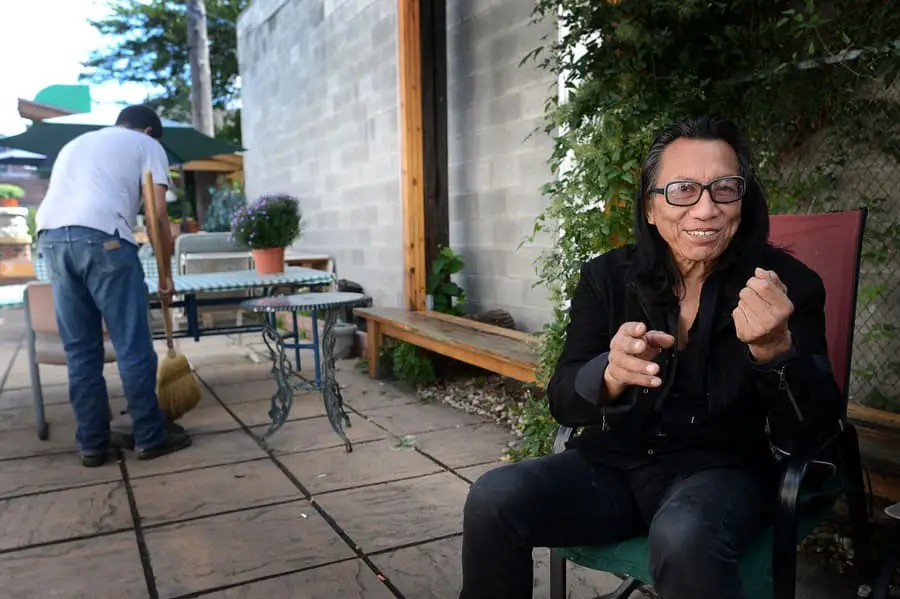
‘Sugar Man’ Songs Banned On The Radio
People opposed the South African government’s apartheid wall building and authority in every way imaginable- including listening to music that criticized officials (or even promoted drugs) like Rodriguez’s album ‘Sugar Man.’
His hit single would eventually get him banned from the radio for its political message (and because some listeners felt threatened).
The controversy only increased fans’ support and admiration for the mystery man and his music.
After the song was banned, people all over South Africa wanted to listen. Stories and rumors began to circulate for years after his second album came out.
It was commonly believed by many of Rodriguez’s fans that he committed suicide on stage or shot himself.
Nobody could figure out what happened, because there were no witnesses. It was all speculation, but the rumors took on a life of their own.
This man’s voice is so familiar, but few knew his true identity and personality.
Eventually, Cape Town fan Stephen Segerman teamed up with music journalist Craig Bartholomew after searching through old records around town. Their goal was to put the rumors to rest, and to find out what really happened to Rodriguez.
The Hunt For Sixto Rodriguez
Even Elvis Presley and the Rolling Stones had nothing on Rodriguez at the time in South Africa.
But Sixto didn’t know he was such a big deal in the country until three decades later.
It was his daughter Eva who made this unbelievable discovery in 1997.
Segerman created a website called ‘The Great Rodriguez Hunt,’ and featured a picture of Rodriguez on milk cartons, explaining that his daughter would love to speak to him as well.
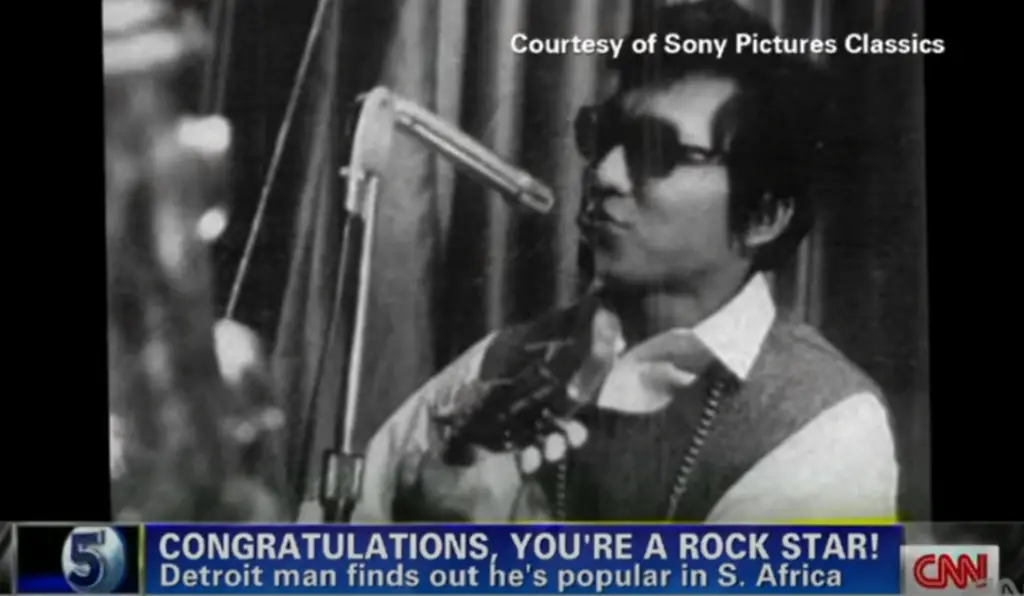
They Found “Sugar Man” Sixto Rodriguez
Eva was surprised when she found the website and wrote, “Rodriguez is my father! I’m serious.”
She then got a phone call from Segerman and was told that her dad was huge in South Africa and sold millions of albums.
She was even more shocked when the entire country assumed he was dead, as he was very much alive.
A few days later, Segerman woke up to a phone call from the one and only Rodriguez.
He told him how his music impacted so many people in South Africa, and asked if he could perform there soon.
Bartholomew published an article abut his findings on November 23rd, 2017 titled ‘Looking For Rodríguez,’ which quickly went viral with over three million views since its publication.
In 1998 when they asked him for a show, they said it would be for dedicated fans only.
Not even family members were allowed onstage because of how famous the man wa s at the time.
s at the time.
His daughters had the chance to see him perform, however.
As they were picked up in a limousine from the airport, fans couldn’t believe their eyes.
Before he even began to sing, Rodriguez was greeted by an audience of 5,000 people offering up a standing ovation, convinced this wasn’t really him after all – because everyone knew that dead celebrities don’t perform live!
His shows still sold out quickly, despite the skepticism.
Rodríguez made a name for himself in South Africa decades earlier, but few knew until 2012 when the award-winning documentary ‘Searching For Sugar Man’ was released.
It changed everything and now he’s recognized across America.
Now, I sit in a Starbucks in Boca Raton, Florida, writing this article.
I hear Sugar Man’s song “I Wonder” every single time I come here to write.
God works in mysterious ways, and the story of the legendary Sugar Man is proof positive.
Here is the song, for your listening pleasure:
Nowadays, Rodriguez lives a modern yet humble life, even with his newly discovered fame.
He previously purchased a home in Detroit from a government auction for $50, and has stayed there for quite some time.
He doesn’t live extravagantly or in a flashy manner – he still works at the same job and until 2013 was living at home rent free!
Today, Rodriguez tours around the world at age 75, earning money through his records and giving most of it away to family members that have supported him throughout his wild ride.
He is one of the most humble and relatable humans out there, and that’s a big part of his mystique.
Where is The Money Rodriquez Made?
Although Sugar Man was found, one major question persisted: Why did South African record labels release Rodriguez’s albums without paying royalties to Sussex Records?
Reportedly they did at one point, but in 1975 the money trail went cold.
The founder of Sussex Records, Clarence Avant, made some bold claims that it’s been too long for him to remember everything clearly. His health is starting to fail as well.
Luckily an investigation has begun, looking into where all those millions went.
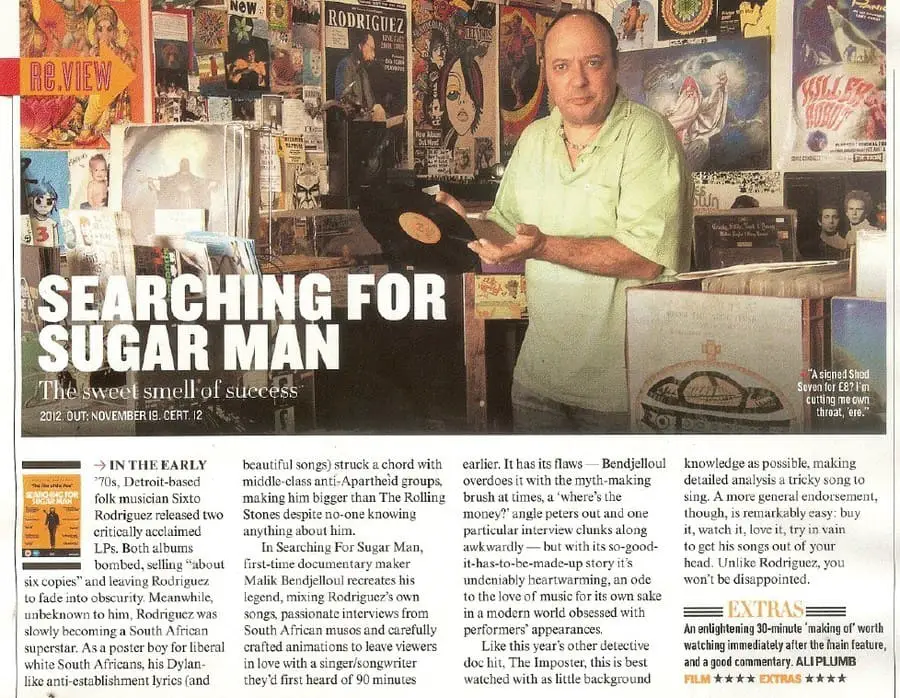
Another rumor theorized that Rodriguez went to jail and died from a drug overdose, or that he was working as a mechanic in South America, or as an unknown garage band member who became jealous of others’ success.
Many fans became captivated by the Cold Fact album song ‘Establishment Blues’ when it said “I opened up/The window so you could hear me sing.”
They wondered exactly where Rodriguez was, if he was alive, and what he had been doing.
Rodriguez’s death rumors turned out to be just that — rumors.
It just goes to show you that your dream can be kept alive by others, even when you’re unaware.
Rodriguez’s dream was to unite people through music, while
creating a revolution and changing the way we think.
That’s why his music was banned in South Africa during apartheid.
During Rodriguez’s first performance on stage after recognizing his fame, the first thing he said to the crowd was “Thank you for keeping me alive.”
You can watch a clip from that magnificent day here.
That’s why, to some small degree, I write this story.
Even if you feel like your dream is dead, there is still hope.
There may be a whole country, a whole tribe, a whole army of people that are keeping your dream alive for you without your knowledge somewhere.
Regardless of your circumstances, or whether you’re alone or part of a family or ‘tribe,’ keep going.
Don’t stop, and don’t quit.
You can watch the Searching For Sugarman documentary online here, and it may still be on Netflix.
It is one of the most inspirational stories I have ever heard in my life, so be sure to check it out if you have a chance.
Below is the Latest Performance Of Him in 2018.
Enjoy, and thanks so much for reading:





